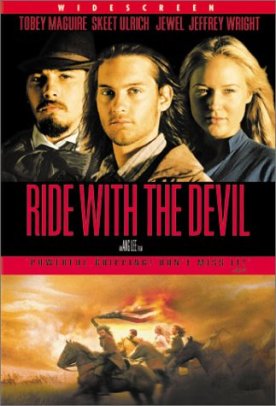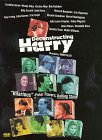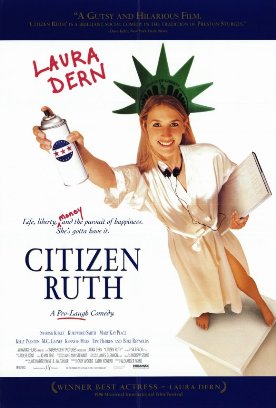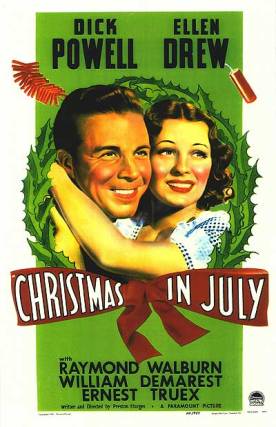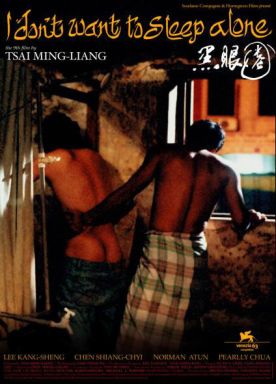Ride With the Devil
In Ride With the Devil, the great Taiwanese director Ang Lee shows once again that he has a kind of genius for the old Hollywood trick of adapting second-rank fiction to the big screen. This is not meant to be a put-down. First rank fiction very rarely makes a first rank movie. What to my mind are the great cinematic classics are almost invariably adapted from second or even third-rate novels. Now having essayed with considerable success Sense and Sensibility (next to Northanger Abbey the slightest of Jane Austen’s novels) and Rick Moody’s The Ice Storm, he has taken on Daniel Woodrell’s Woe To Live On, a searing account of the struggle between renegade Confederate Bushwhackers and Jayhawkers loyal to the Union on the Missouri- Kansas frontier during the Civil War.
The most striking thing about this movie is the writing. Woodrell and his cinematic adaptor, James Schamus, have taken considerable pains to make the Missourians and Kansans of the 1860s talk like themselves (or at least like what we imagine them to have talked like on the basis of what has been preserved in printed documents) and not like us verbal slobs of the late 20th century. This in itself is a considerable achievement, and our sense of the reality of these characters is enhanced by their linguistic otherness. Here, for example, is the hero, Jake “Dutchy” Roedel, talking about his “nubbin” of a little finger, shot off in an encounter with some Jayhawkers: “It makes me notable by the loss…It was a fine finger, but it was took from me and has now been et by the chickens for sure.” You’ll spend many a weary day in the Multiplex before you ever hear another line to delight like that one.
Moreover, Lee also manages to make the proto-guerrilla warfare of the frontier look real in its messiness, its confusion, its pointlessness. Here is a double achievement to be celebrated. Lee only just misses the hat-trick by failing, quite, to show us why these men are fighting in the first place. Jake’s ambition to make his way to California where he may take ship for sunnier climes and “eat me some olives” smacks of the romance of 20th century alienation rather than 19th century nationalism. It was wise of Lee to choose to show us the Confederate partisans from the inside, rather than the Union men. All — or most — temptation to trumpet the retrospective nobility of the cause is thus avoided. Yet there is little to put in its place. Neither states’ rights nor the special solidarity of men in battle together — neither “cause” nor “comrades,” to use James McPherson’s handy categories — makes more than a token appearance here.
As a result, we are left, as in so many “anti-war” movies, only with a sense of the absurdity, the waste of it all, and the unsolvable mystery of why these young men ever thought of going to war in the first place. In fact, the mystery is not at all unsolvable — or even difficult. They thought that fighting for their country was a glorious adventure, the honor of taking part in which far outweighed the horror and tragedy involved. If, schooled by the even greater horrors of the last century’s wars, we no longer find it natural or even comprehensible to believe in any such thing as this honor and glory, the filmmaker must try all the harder to re-create the mind and spirit of those who did. Lee side-steps this difficult but necessary task. The word “honor” appears occasionally among other linguistic fossils here dusted off for our delectation — as when a character memorializes his father by saying that “I still obey the call to honor that he taught me [to obey],” but we have little sense of what these words meant to the speaker, unless we bring it with us.
It is a failing that is not surprising, even if it is not quite forgivable. And there is much in the film that is first rate, to help us forget such deficiencies. I particularly liked a disillusioned Southerner’s explanation of why the South was bound to lose the war by citing the schoolhouse in Lawrence, Kansas, built even before the church. “They rounded every pup up into that school house because they believe that everyone should have the same free-thinking ways they have. . . That is why we shall lose. We don’t care what they think. We only care about ourselves.” Also smartly done is the explanation of why the former slave, Daniel Holt (Jeffrey Wright), continues to fight for the South alongside his former master, played by Simon Baker. When the benevolent white man bought him out of slavery, he put him under an obligation more binding, in his former slave’s mind, than the chains he was in before. It is therefore with relief that he greets the death of the friend to whom he has been so faithful. He is at last relieved of the burden of his debt.
This is another form of honor that could have been explored more carefully for clues as to why men fight, and should have been linked thematically to the romance of Southern chivalry as it is exemplified in the career of Jake’s best friend, Jack-Bull Chiles (Skeet Ulrich). But although we might regret not having a more profound and persuasive version of this story, we should be grateful for what we do have, which is a compellingly watchable war movie. And by coming closer than any movie I know of in recent years to recreating for us the strangeness of the past, it allows us a glimpse into the possibility of understanding war.
Discover more from James Bowman
Subscribe to get the latest posts to your email.

